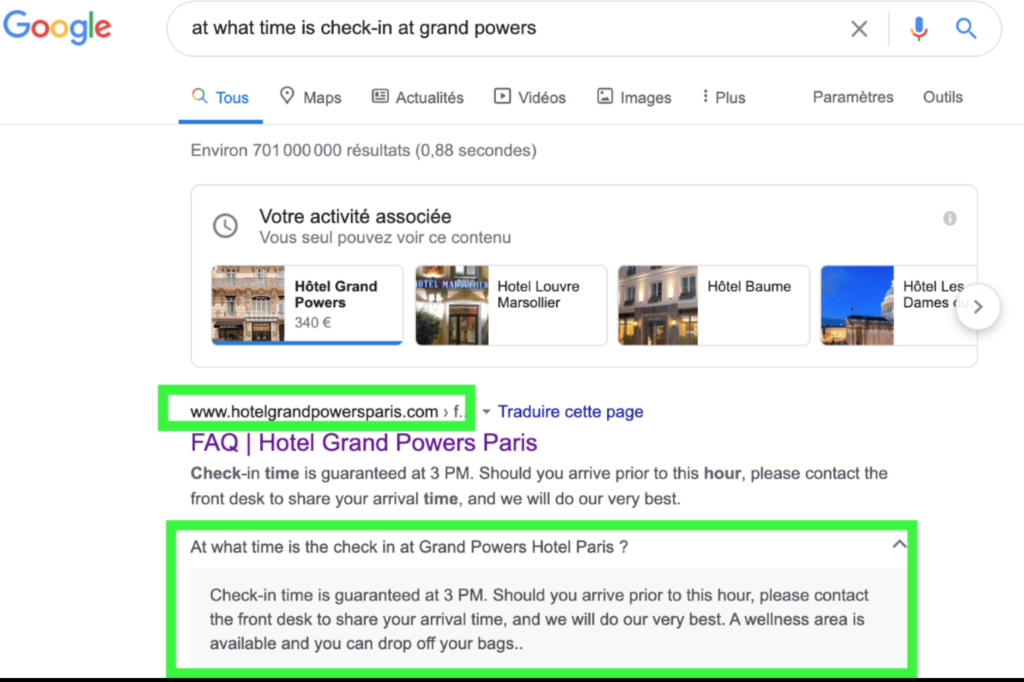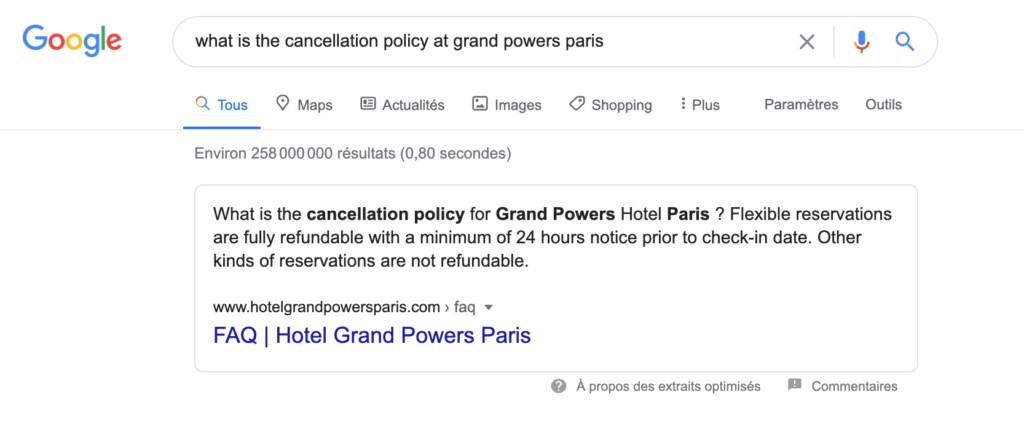When considering chatbots for hotel groups, scalability should be your number 1 concern
In the last 12 months, I have seen more and more hotel groups wanting to invest in chatbots. However, most hoteliers are still quite green and tend to focus on the shiny stuff instead of what really matters.
The main challenge with chatbots for hotel groups is not AI but data management. How do you update your chatbot information and maintain consistency across languages when you have over 10-50-100-1000 properties? Scale can and will crush your project if you don’t anticipate it. Profitable innovation is not about thinking 1 step forward but 5 or 6.
Database scalability: populating and updating your chatbot
The role of a chatbot is to receive a customer request, match it to the correct information in its database and deliver the right answer in the appropriate language.

Most chatbot answers are a simple text written in each language by the hotel or the chatbot provider itself. This might work for a single property but quickly becomes a nightmare as soon as you start to scale.
Text-based chatbots have a fatal scalability issue

If you are a hotel group you should be mindful of this weakness as it might undermine your whole chatbot project. Of course, the difficulty increases 10-fold when you add non-European languages into the mix (Arabic, Chinese, Indian, Japanese…).
At Quicktext, we solved this problem by basing our chatbot on data points instead of text. It means that the chatbot is able to process its answers based on basic data that can be easily collected and updated through a datasheet. This takes away all the pain of scripting and translating answers yourself.
See the example for check-in time. From the data collected, the chatbot is able to form its own sentences in all languages.
Check-in item from Quicktext datasheet

Check-in answer on Quicktext chatbot – English and Chinese

To be totally transparent, for groups over 100 properties, even this method is clumsy and the only recommended alternative is to create a direct API connection between the chatbot and the group data lake where the info of all the hotels is stored and updated. Data silos must be avoided at all costs as inconsistent information can only mislead customers and defeat the whole purpose of your project.
Customer scalability: what if the customer doesn’t know the name of the hotel he is looking for?
Scale should also be addressed from the perspective of the customer. NH hotels has about 30 hotels in Madrid and Amsterdam. Accor has over 100 hotels in Paris etc. If you know the name of more than 4 NH or Accor hotels it is most likely because you work for one of these groups! Most customers just do not know the name of the hotel they are interested in and so many not-so-relevant options induce choice paralysis. When customers do not know exactly what they are looking for, the purpose of most chatbots is defeated because they fail to guide customers.
Classic bot

Beyond delivering information, chatbots for hotel groups should be able to guide customers if they say they are looking for a hotel with a swimming pool in the center of Amsterdam for under 200€/night. In an instant, from 100, the possible options might be reduced to 1 or 2 which is much easier for the customer to handle.
This is fairly easy to manage with a chatbot based on data since the chatbot can instantly check the features of all hotels as they are clearly identified. A chatbot can’t cross-check hotel features in free-text answers.
Data based bot
Meta chatbot scalability: What happens when you add Google in the mix?
I wanted to close on a personal vision. I believe that chatbots are not the end game. In fact, they are only the first step of a much bigger disruption. More than half (54%) of mobile searches start and end in Google. This phenomenon is called no-click search meaning that Google provides the answer the customer is looking for based on what could be found on the Internet.
Here is a simple example of a generic search where Google presents an answer instead of pure search results:

For travel, you can enter your next flight number in the search bar of Google and you will see the details of your flight.

For hotels, Google is conducting some very interesting experiments. Already, this search engine is able to deliver information better than most websites. How long do you think it will take before Google asks for access to more detailed information about each hotel’s features? And an even better question is who will answer; the hotel itself or any OTA?
Google is already able to answer simple questions =>


Google, my business already does a better job than most websites at displaying relevant information =>

The real challenge is around data and how you will manage to make it granular enough so that it can be useful to your customers through your chatbot in the short run. You will also need to think about its evolution in the medium run.
If you’d like to discuss chatbots for hotel groups and how to prevent their failure, or have any questions about artificial intelligence in hospitality, please visit our website or contact Benjamin Devisme.


